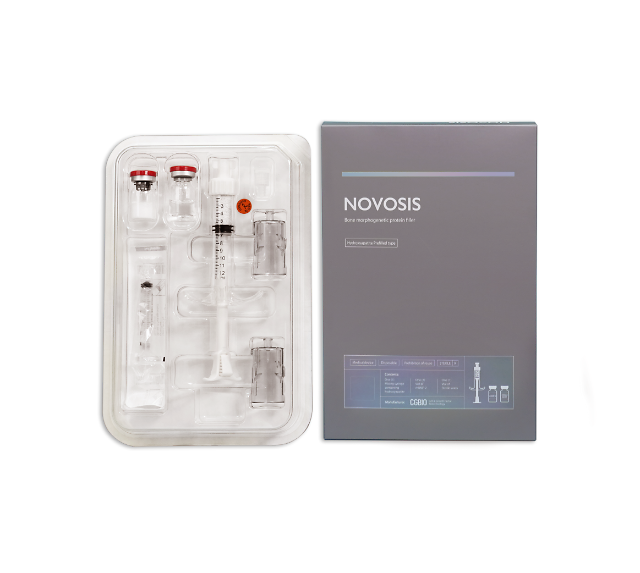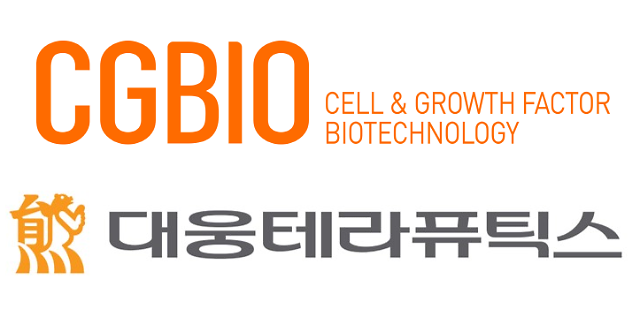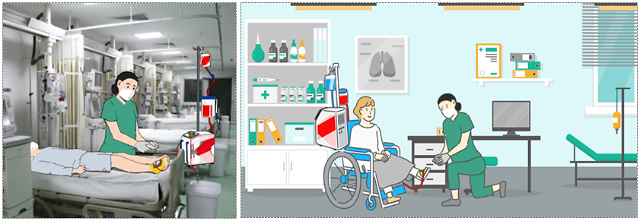
[Courtesy of CGBio]
SEOUL -- CGBio, a total healthcare provider in South Korea, has secured a firm foothold for the sale of its synthetic bone graft material used clinically for spine, orthopedic, trauma and dental applications in North America through a license-out and finished product supply contract with Orthofix, a U.S. medical device company.
CGBio's Novosis, approved for use in South Korea, Southeast Asia, Mexico and India, is a recombinant human bone morphogenetic protein-2 (rhBMP-2) bone growth material that acts as a scaffold for the formation of new bone and provides moldable handling.
CGBio will receive $28 million in down payment and milestones. After approval by the U.S. Food and Drug Administration, the company targets five trillion won ($3.5 billion) in cumulative revenue for about 10 years from the start of sales by achieving a 50 percent market share in North America.
CGBio said it would combine Orthofix's local sales network, marketing skills, and product technology with the excellent technology and price competitiveness of Novosis to aggressively enter the North American market. Orthofix' bone growth therapy devices provide a safe, non-invasive treatment that helps promote healing in fractured bones and spinal fusions that have not healed.
CGBio CEO Yu Hyun-seung hailed the contract as the largest export contract signed by a domestic medical device company that recognized CGBio's advanced research capabilities and technology. "Novosis' entry into the U.S. market is significant in that a Korean bone replacement product makes its entry into the global market."
The core technology of Novosys is a porous hydroxyapatite ceramic carrier with excellent biocompatibility. CGBio described hydroxyapatite as the most suitable material for bone substitution. Since damaged bones recover over several months, bone-forming proteins should be released slowly and continuously to lower the risk of developing ectopic bone formation, a phenomenon in which bones grow in unintended places. CGBio produced bone-forming proteins with E. Coli-derived proteins, not animal-derived.
CGBio gave a positive outlook on its business in North America, citing a growing need for bone replacement materials and an aging society that increased the number of patients with disk diseases and senile fractures. Spine fusion surgery is essential to treat disc diseases that do not improve even with conservative and drug treatment. It removes a problematic disk and inserts a cage filled with autogenous bone or bone substitution.
Copyright ⓒ Aju Press All rights reserved.



View more comments